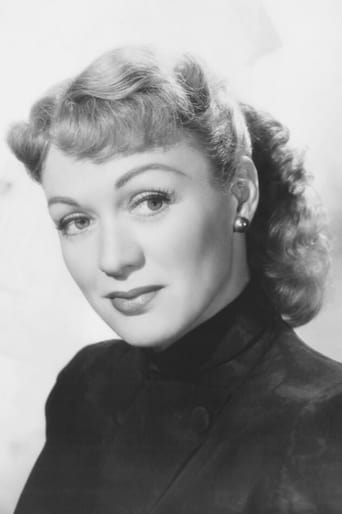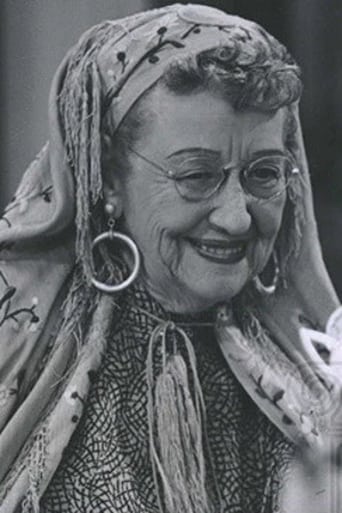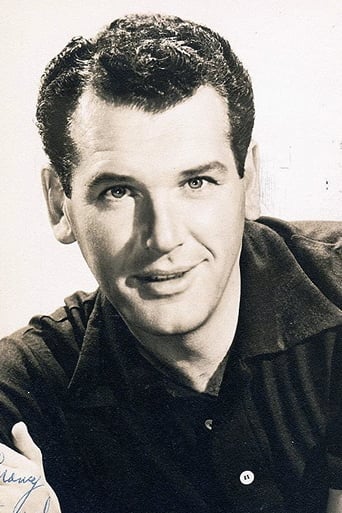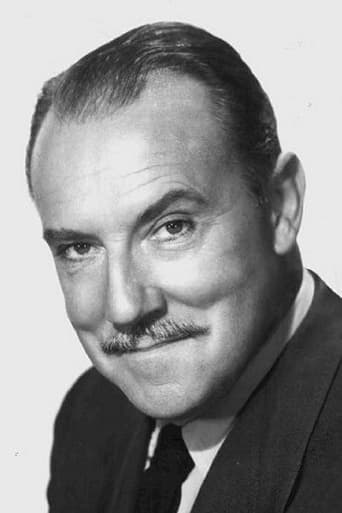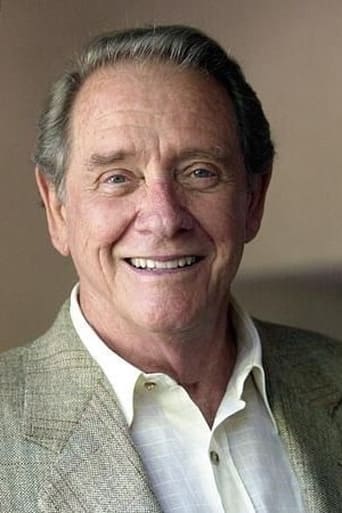edwagreen
Absolutely, an outstanding television show fully realizing the comedic talents of Eve Arden and Gale Gordon-English teacher and principal of Madison H.S. The exchanges between those two are memorable. Teachers of yesteryear may have even had some of those challenges as well.When the show was first being casted, Miss Brooks was supposed to be a gym teacher. When Arden was cast for the starring role, the writers and director correctly saw that her diction merited the part being changed to an English teacher. How right they were.With a support like landlady Davis and biology teacher, Mr. Boynton, who Brooks wanted and would go miles to get, a perfect comic imagery of high school life was depicted. Of course, Walter Denton, our favorite student, etched an unforgettable character as played by an excellent Richard Crenna. This show was certainly indicative of the lay-back 1950s era.
michaelcarraher
and heard the radio show, too. The show made a seamless transition from radio to television with the original cast and writers intact. It was filmed by Desilu as a one-camera show, so it lacks some of the energy which shows like I Love Lucy derived from a live studio audience. But the cast was perfectly cast and the writing was sharp. The only false note in the program concept is Arden's desperate and somewhat pathetic attempt to "hook" shy biology teacher "Mr. Boynton." There is almost no chemistry between the two and no evidence of passion on "Miss Brooks'" part. The real sizzle here comes from the classic exchanges between "Miss Brooks" and principal "Osgood Conklin." Gale Gordon as "Mr. Conklin" is far funnier than in his later roles as foil for Lucille Ball. Richard Crenna is a bit too old to play a high school boy in the TV version but his strong abilities as a comic actor allow him to pull it off. The TV show is not available on DVD or video tape; the movie version is shown regularly on TCM and is very close to the TV series (albeit with more money to spend on the production). The main difference between the two, the movie focused on the Brooks-Boynton romance and downplayed "Miss Brooks'" work in the classroom, interactions with students and - unfortunately - her classic exchanges with "Mr. Conklin."
silverscreen888
It has not been realized heretofore that "Our Miss Brooks" is an objectivist program. Its central character, Constance Brooks, is a Renaissance man, decidedly feminine. She is beautiful, poised, intelligent, well-educated, professionally capable, a gifted teacher well appreciated by her students, sexy, possessed of a rapier wit and unusual patience, as well as life-experience, common sense and self-confidence. She likes her job and a number of those with whom she works. There are only three things she lacks, and she know them all-too-well--a constitution to protect her rights, a government to enforce those protections and a male counterpart with whom to share her life. So there are two allegories being played out in "Our Miss Brooks"--the anti-statist or republican characters targeted for satire, and the anti-socialist or democratic characters target for satire. The key to the show is the name "Madison" high school; James Madison was the Founding Father who defined the marketplaces which, together with their ideal-level corresponding markets (which he omitted) would define how a marketplace of lives should operate. This is what the United States was to be--a marketplace of lives in which categorical equal adult self-responsibles were to act under category-level definitions and scientist-drawn regulations enjoying life, liberty and prioritized volitional goals of "ethical happiness" as their birthright. Since 1902, the United States however had been a public-interest bureaucratic totalitarianism--so our heroine (whose name signified "constancy" and "brooking" meaning putting up with everything) had no choice but to be a revolutionary for self assertion she had to be an opponent of an Establishment that had let her down as it had let everyone else down in the country. The high school's founder, Yodar Krich, was given a Communist name; and in the person of her high school's principal, Osgood Conklin, a mental cipher and stuffed shirt suggesting Lord Haw Haw the WWII British Quisling added to a barbarian who clubbed people by "conking them" into submission, the totalitarian Establishment was given a condign figure. Other characters confirm the two allegories I suggest. The school's biology teacher is a handsome obtuse bachelor named Philip Boynton, who is blind to the fact that Miss Brooks thinks he is wonderful and would be his perfect partner, who puts up with everything with "boyish' cheerfulness; in the pseudo-religious US, as in "Who's Afraid of Virgina Woolf" of some years later, the intellectual class has thus been rendered impotent. Miss Brooks gets a ride to work each day from perpetual student and rebel Walter Denton, whose joy in life is bedeviling Principal Conklin (putting "dents" in his armor?) while romancing his daughter. Conklin has a wife, Martha, First Lady to this head frog in a rural puddle; the daughter is named Harriet. The series is fleshed out with many interesting but decidedly secondary characters; they all revolve about the amazingly powerful persona of Miss Brooks as "ethical central character". But the program is a satire and not a comedy since Miss Brooks's success depends upon ideas, not physical attributes or actions; she is smarter than all the others present and is the natural leader of any action to thwart the latest Conklin plot against student and parental well-being. The cast of this award-winning and well-loved comedic offering was headed by Eve Arden, gorgeous and immensely-talented actress who was seldom if ever allowed to play leads in a Hollywood devoted to making films denigrating feminine capability, leadership qualities and basic rights. Her nemesis, Mr./Conklin, was played by talented comedy actor Gale Gordon. Richard Crenna, much older than his character, used a high-pitched voice to bring Walter Denton to life. Virginia Gordon and later Paula Winslowe played the oblivious and long-suffering wife, and Gloria McMillan the Walter Denton worshipping Harriet. Others in the very talented cast included Bob Sweeney, Mary Jane Croft, Jesslyn Fax, Jane Morgan as Connie Brooks' dotty landlady, Joseph Kearns as Superintendent Stone (stony-heart?); Robert Rockwell as Mr. Boynton, and Leonard White as a the campus athlete and dumb-head "Stretch" Snodgrass. Bob Weiskopf was the show's head writer, William Asher (later of "Bewitched") and John Rich its capable directors. Karl Freund did the unusually strong cinematography with music by TV veterans Wilber Hatch and Harry Lubin. The program's writers went off into far-fetched situations at times; but the core of the show was Miss Brooks. And she was anything but a person who believed a human being ought to live either in order to obey blind orders from public tsars or to hand out hard-earned benefits to the unworthy. She taught her students that life is to be lived according to judgment; that this requires self-discipline, a clear goal and honesty. And for as long as our Miss brooks was permitted to bring sunshine to us as enemies of pomposity, stupidity, empty order-giving and pragmatic violators of individual liberties (1952--1956) we had the female champion we had been waiting half a century to hear from on our screens--the woman who could put up with anything, but chose instead to fight back quietly and often very effectively, using the barbed one-liner and the appeal to reason as her weapons in her fight for individual happiness.
